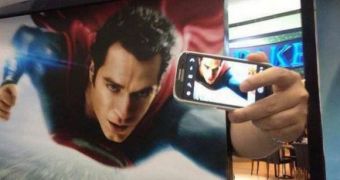After the selfie craze has taken over the entire world and some people have become obsessed with taking photos of themselves and posting them on social media sites, this annoying habit of our generation has reportedly been classified as a mental disorder.
The American Psychiatric Association (APA) has allegedly analyzed the exaggerated tendency of taking pictures of one's self and classified it as an addiction. The disorder has been labeled “selfitis” and has been defined as “the obsessive compulsive desire to take photos of one’s self and post them on social media as a way to make up for the lack of self-esteem and to fill a gap in intimacy.”
According to The Adobo Chronicles, APA has identified three stages of this disturbing mental disorder, starting with borderline selfitis, when people take photos three times a day but don’t necessarily post them on social media. Then there is acute selfitis which includes taking selfies at least three times a day and posting them on social media.
And the most severe form is the chronic selfitis, which is described as the “uncontrollable urge” to take photos of oneself around the clock and posting them online at least six times a day.
Given all the buzz around this social phenomenon, you might think that this is actually legit, but if we take into consideration that the news has been brought to our attention by The Adobo Chronicles, a site which is known for its hoaxes, it becomes obvious that this is a false story, most likely elaborated to raise awareness of the negative effects that the selfie phenomenon might have on today's society.
The story comes after the selfie craze proved nearly fatal for a British teenager who became so obsessed with taking the perfect photo of himself that he attempted suicide because he didn't like any of his pictures. Danny Bowman would spend up to 10 hours a day trying to snap the perfect selfie, but failing to do so led him to a suicide attempt.
Doctors diagnosed Danny with body dysmorphic disorder, an excessive anxiety about personal appearance, and the boy has had therapy to treat his addiction. His extreme case led psychiatrists to classify selfie addiction as a serious mental ailment.
However, back to APA's alleged decision to declare the fad as a mental disorder and label it “selfitis,” there is no evidence to prove this is true. First of all, it has no clinical support from the medical association itself, as a search of the APA website doesn't return any result for the keywords “selfie” or “selfitis.”
Secondly, the American Psychiatric Association board meets five times a year, not annually, as the so-called news article claims.
And finally, any respectable association would certainly base their conclusions on some reliable studies, and would mention those studies in their reports, which is not the case here.

 14 DAY TRIAL //
14 DAY TRIAL //